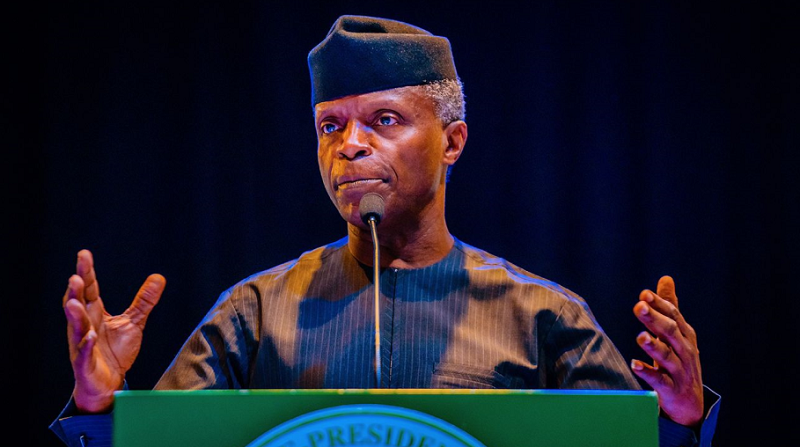By Asmau Ahmad
Nigeria’s Vice President, Professor Yemi Osinbajo said it has become imperative for Africa to develop an education curriculum that will be relevant to the changing world and available jobs.
Osinbajo expressed this view on Saturday in Nairobi, Kenya, while featuring as a panelist at the first session of the 2023 Ibrahim Governance Forum with theme, “Africa in the World: Multiple Assets.”
The session is part of the 2023 Mo Ibrahim Governance Weekend organised by the Mo Ibrahim Foundation.
The vice president participated in the session alongside Donald Kaberuka, Africa Union Special Envoy and former President of African Development Bank and Hafou Toure, Deputy Director of Cabinet for the Minister in charge of promoting Small and Medium Enterprises in Côte d’Ivoire.
More so, Ibrahim Mayaki, AU Special for Food Systems, featured in the session online.
Prof. Osinbajo spoke on what the future holds for Africa with regards to the creative industry, education among others.
The creative industry in Africa is a phenomenon that many will say happened without government.
“It possibly happened because there was no government; so, I think that in many ways what is important is to see how the creative industry can be supported.
“Firstly, entertainment, it is evident that there is a huge amount of talents and it’s evident also that the regulatory environment favours it because there are no impediments.
“And one would say that, as much as possible, what we should seek to do is to see how we can expand that space and to support with credit where that is possible and infrastructure that will be helpful.”
He said that in Nigeria, the National Theatre had a few studios for films, entertainment and others and had shown great promise in supporting the industry.
“And the need and support they can get in many cases that support can come especially in the form of infrastructure from the government and credit also from the government.
“But things have changed in so many fundamental respects that there is greater independence of the artist and the creative people and they really function very effectively with little help.
“I would say that we should be cautious in not interfering too much; at the same time, we need to provide infrastructure, we need to provide credit with such an exposure that they may need.
“Well, certainly we could do a lot more I don’t think it is right to say that we are doing what we can. But frankly I think that we should start from the premise of placing a different vision before our young people.”
According to him, there is need to have a clarity of vision on where Africa is headed in terms of education.
He said there was need to give Africa’s young people a sense that there was a future and that there were promises that could be made and delivered.
The vice president said that education was about youth demographics.
“It is really the privileged young people; I use the word privilege cautiously because these are young people with education – local education or education abroad, some have college degree and all of that and there is a huge rural young people who have no education and that demography has a large number of women.
“So, even understanding what such of educational programmes we need to put in place and even the vision for that educational programme you have to understand that we are dealing with several demographics.
“The final point is that we are in a new place where the world has changed so dramatically and particularly in the past 10 years, where we have robotic, artificial intelligence; what sort of education makes sense to create job opportunities today?
“This is the time to think through the educational curriculum and to decide how this curriculum will be relevant and would deliver the sort of persons that we want to deliver and create the sort of opportunities that we require for the jobs that will be available,” he said.
Earlier in his opening remarks, Mo Ibrahim, who is also the founder, Mo Ibrahim Foundation, said it had become urgent for Africa to adjust to the fast-paced world.
According to him, questions on Africa’s relationship with the rest of the world and the benefits therein will be raised at the forum.
“This year, the world is changing around us; I think everybody knows that; all the previous assumptions are being broken; we see different powers rising; tensions, camps being formed, where exactly is Africa’s place.
“Things are really changing around us and where are we? What is our relationship with these people?
“We need to understand and define our relationship with rest of the world; what does Africa offer the world and what does the world offer Africa?” he asked.
At the opening ceremony on Friday, Osinbajo had joined other leaders in celebrating Mahamadou Issoufou, the immediate past president of the Republic of Niger, who won the 2020 Ibrahim Prize for Achievement in African Leadership.




